
Cabinet Refacing vs. Painting: What to Consider
Refacing vs painting cabinets are two popular options for updating your kitchen cabinets. Learn the pros and cons of each option to decide which is right for you!





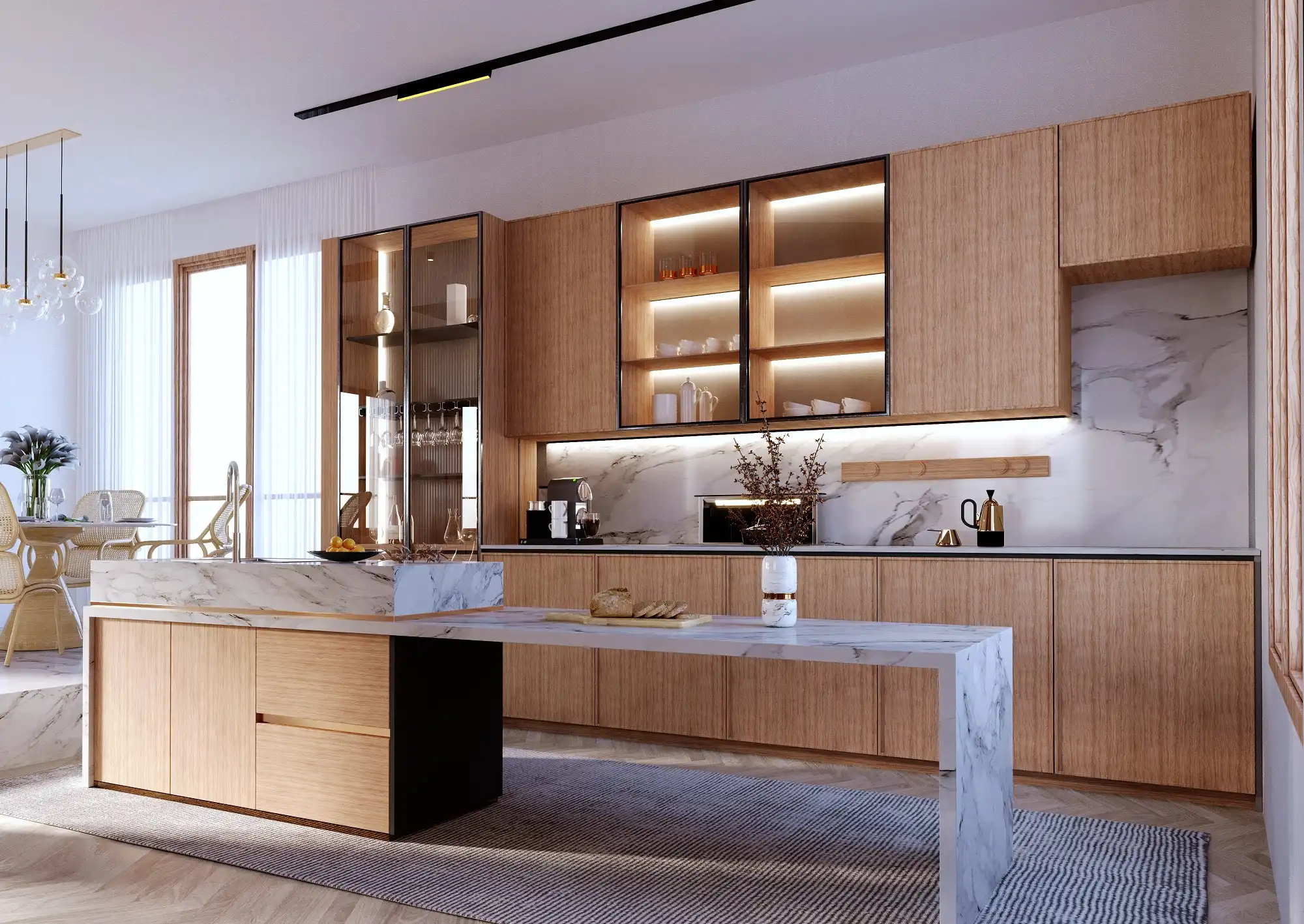





Kitchen renovations can yield incredible results, but they create massive amounts of waste, with over 9.8 million tons of cabinets ending up in landfills each year. These cabinets release harmful chemicals into homes for decades. Your family breathes in these toxins daily, turning what should be the heart of your home into a source of hidden health risks.
As Chicagoland cabinet refacers specializing in sustainable kitchen solutions, we help homeowners balance creating beautiful kitchens with protecting both their families and the environment. Kitchen Cabinet Guys has put together this guide that explores today’s eco-friendly cabinet options, comparing sustainable materials, costs, and environmental impacts.
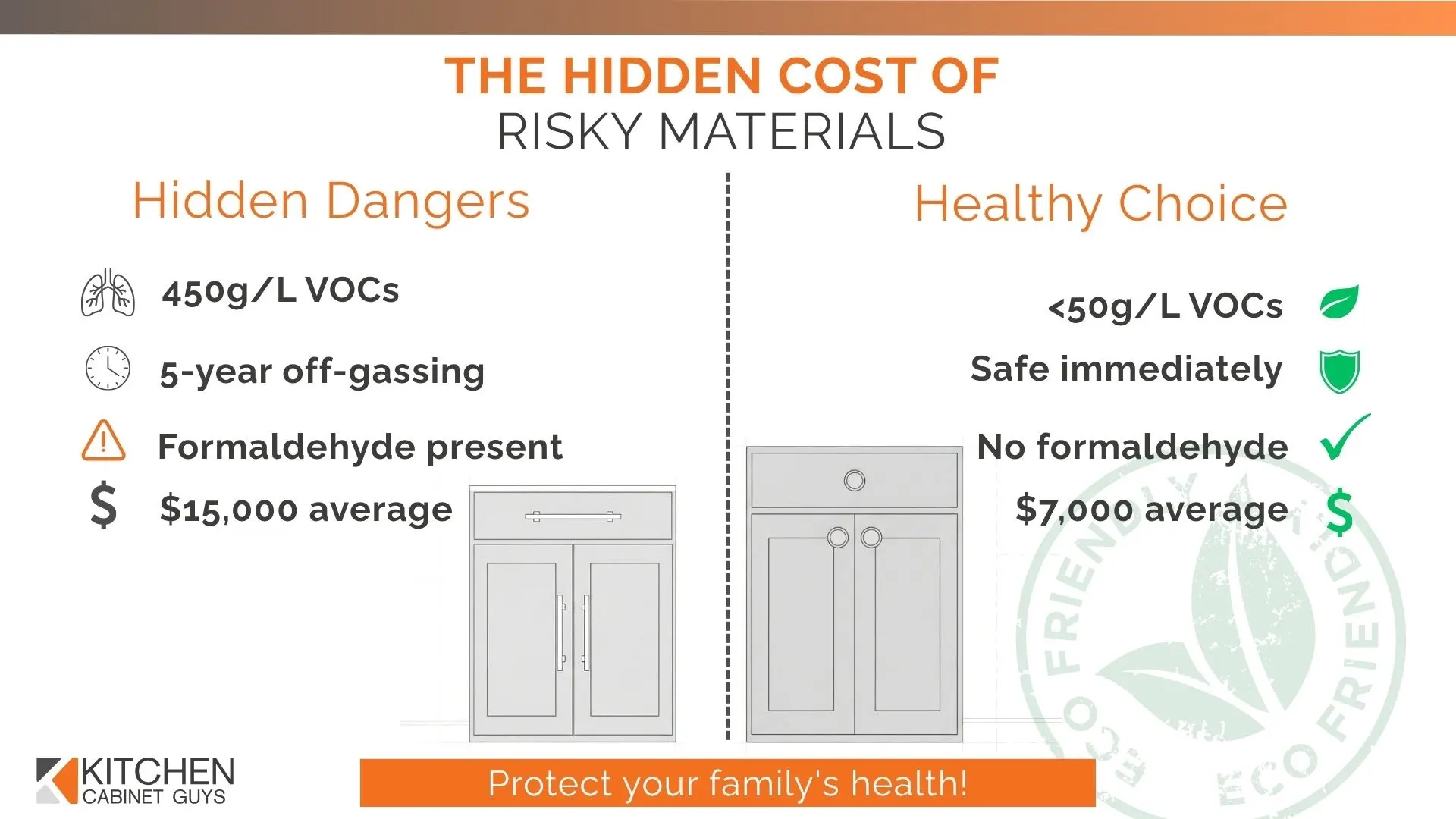
Before you choose sustainable cabinets, recognize which materials pose risks to your family's health and the environment.
The good news is that today's homeowners have access to numerous eco-friendly alternatives that protect both family health and environmental responsibility.
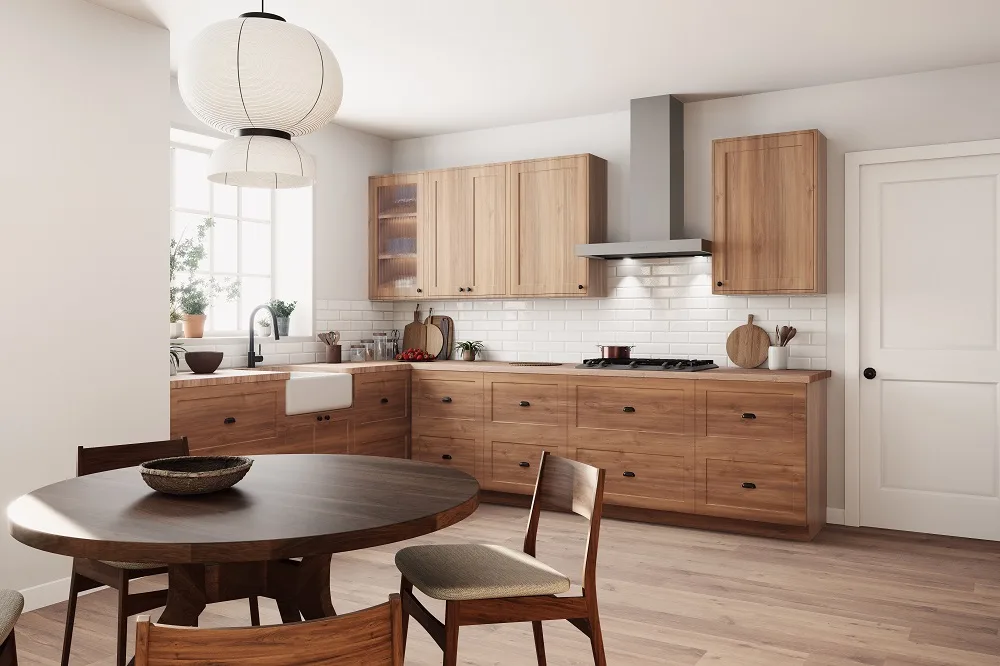
Forest Stewardship Council certification ensures wood comes from responsibly managed forests that provide environmental, social, and economic benefits. The wood is completely biodegradable at the end of its life, returning nutrients to the soil instead of sitting in landfills.
FSC certification guarantees sustainable forestry practices while supporting local communities and protecting wildlife habitats.
While FSC-certified wood offers excellent environmental value, it requires careful consideration of several factors.
We recommend FSC-certified wood for homeowners prioritizing renewable materials and willing to invest in long-term sustainability.
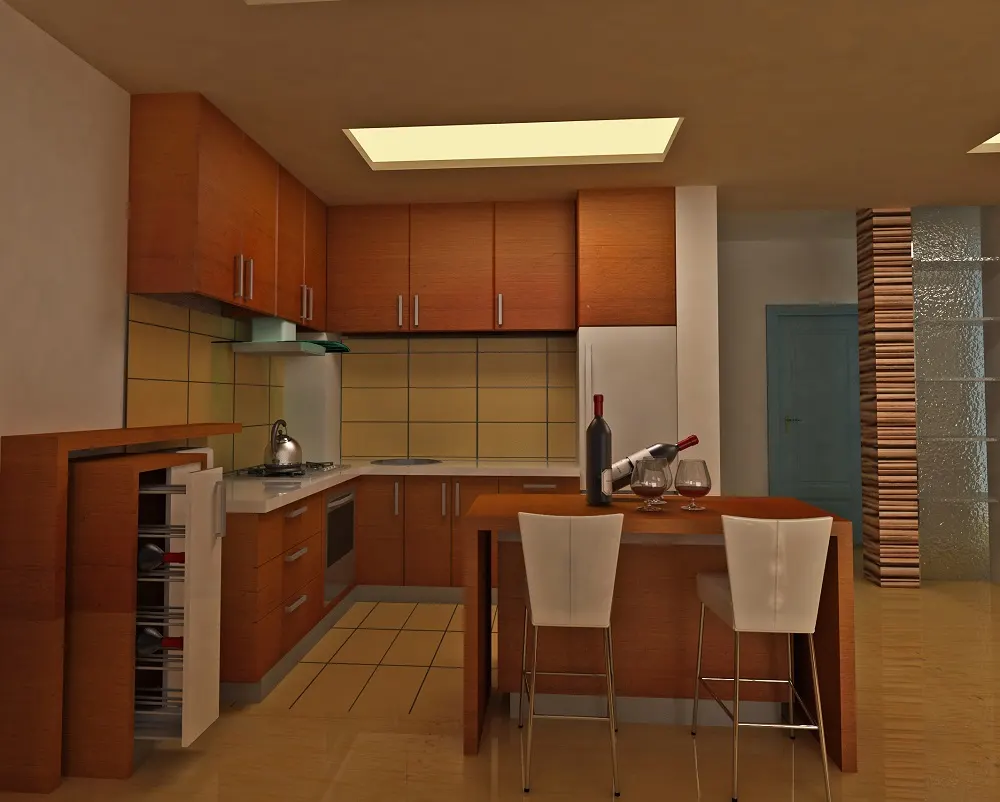
Bamboo grows to maturity in just 3-5 years compared to decades for traditional hardwoods, making it one of the most renewable cabinet materials available.
Bamboo's rapid growth cycle reduces pressure on traditional forests while sequestering more carbon than many tree species.
Consider these factors when evaluating bamboo for your sustainable kitchen project.
Bamboo cabinets work perfectly for eco-conscious homeowners looking for contemporary aesthetics that are still environmentally friendly.
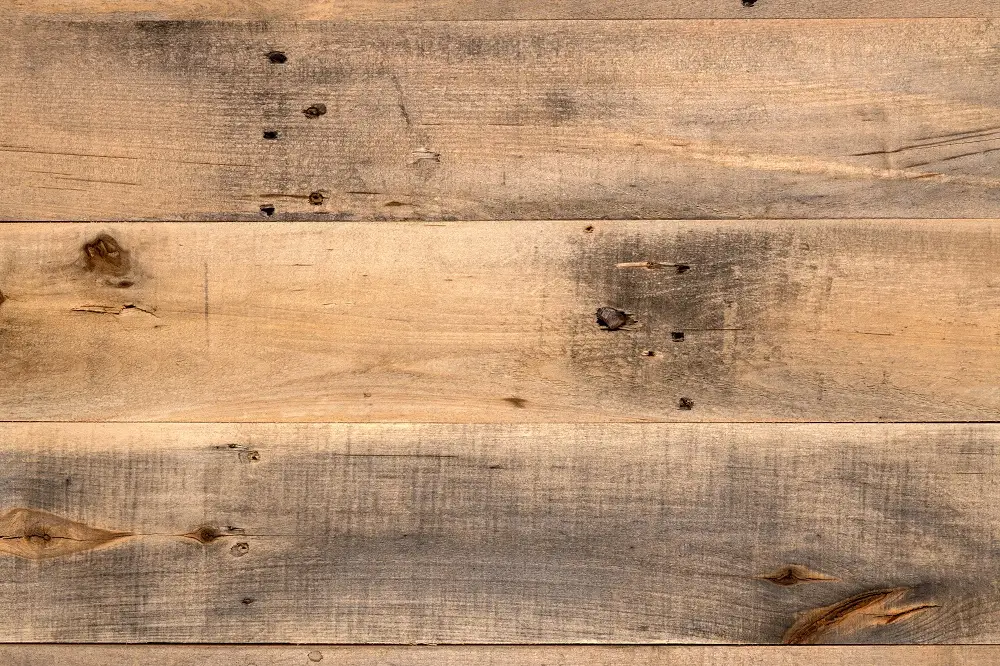
Salvaged from old buildings, barns, and industrial sites, reclaimed wood prevents valuable materials from entering landfills while adding unique character to kitchens.
Every reclaimed wood cabinet saves trees while preserving a piece of history in your kitchen.
Working with reclaimed materials requires patience and flexibility that new materials don't demand.
Reclaimed wood is ideal for homeowners seeking one-of-a-kind character while maximizing environmental responsibility.
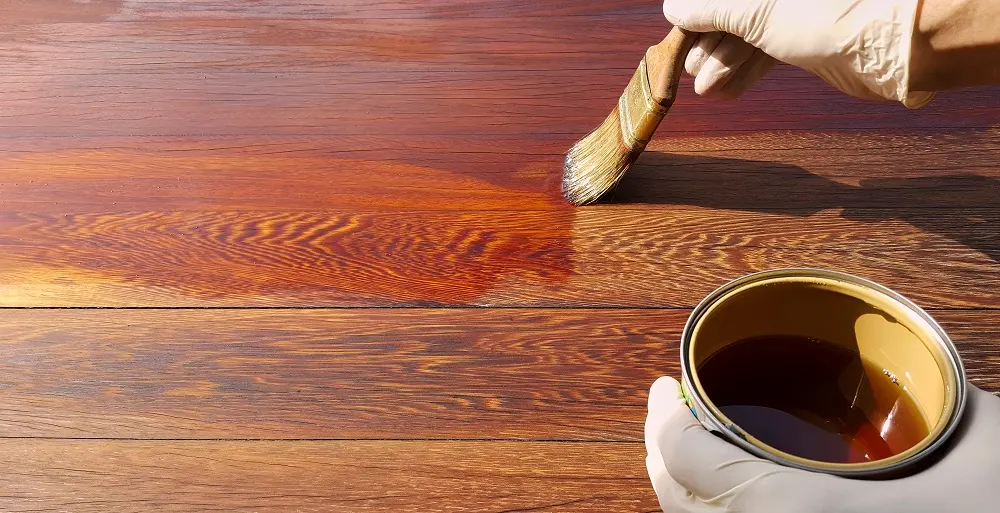
Traditional cabinet finishes can off-gas harmful chemicals for years. However, modern alternatives protect your family's health without sacrificing durability.
These advanced formulations eliminate most harmful emissions while providing excellent protection.
While healthier overall, water-based finishes have some limitations compared to traditional options.
Low-VOC finishes provide essential protection for families prioritizing indoor air quality without major performance sacrifices.
Research shows the sustainable furniture market, including eco-friendly cabinetry, is projected to reach $16.48 billion by 2030, growing at 5.32% annually as homeowners increasingly prioritize environmental responsibility. This rapid growth is remarkable as it reflects changing consumer values, with studies indicating 64% of younger buyers are willing to pay premiums averaging 9.7% for verified sustainable products.
Cabinet refacing transforms your kitchen by replacing doors and drawer fronts while preserving existing cabinet boxes, with prices 50% cheaper than full cabinet replacement. Old doors, drawers, and frames are removed and replaced with 3D laminate surfaces made to mimic wood or other desired materials. Refacing also includes replacing hinges, handles, and hardware.
Our advanced vacuum-forming process bonds OMNOVA's 3D laminate materials at precisely controlled temperatures and pressures. The result is surfaces that resist heat, scratches, and moisture better than most factory finishes. Unlike cheap contact paper or paint that chips when exposed to kitchen heat and humidity, these engineered laminates maintain their appearance for 15-20 years with simple cleaning.
Beyond cabinets, complementary sustainable improvements maximize your kitchen's environmental benefit while enhancing functionality.
Our team recommends combining cabinet refacing with these budget-friendly updates to create a comprehensively sustainable kitchen renovation that addresses multiple environmental concerns simultaneously.
Sustainable cabinet options range from FSC-certified wood to innovative refacing technologies, each offering unique environmental benefits. The choice ultimately depends on balancing your environmental priorities, budget, and timeline, with cabinet refacing emerging as the solution that minimizes waste while maximizing both affordability and speed of transformation.
At Kitchen Cabinet Guys, we specialize in eco-friendly cabinet refacing using advanced OMNOVA 3D laminates that combine sustainability with superior performance. Our Chicagoland team transforms kitchens in just 3-5 days while diverting thousands of pounds of cabinet waste from landfills annually. Plus, we offer a 5-year warranty on our work. Contact us today to discover how cabinet refacing can create your dream kitchen while protecting the environment for future generations.

See how much waste and carbon emissions you could save by choosing cabinet refacing over replacement. Our Chicagoland specialists help you make eco-conscious decisions that factor in both your budget and the planet.
Call Us Now: (800) 809-7197 or
Get a Free Estimate